Throwback Thursday: A time when food waste was simply unheard of
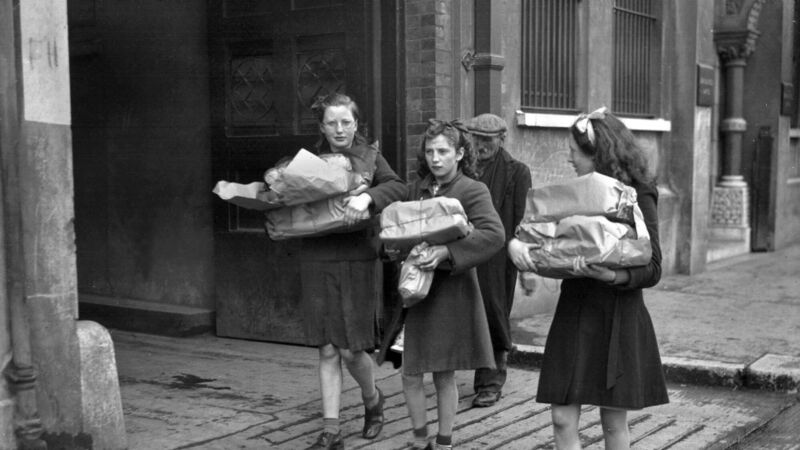
Stocking up as bread in Cork in 1945.
THE other day, I was having coffee (and an excellent scone) in a West Cork hotel. Close by were a young couple with a toddler son. Their table was crammed with dishes, and they were chatting while absently nibbling on sandwiches. The toddler dipped the occasional chip into ketchup and chewed it thoughtfully.
After a half hour or so, they all got up to go, and I happened to glance at their table. Almost the entire food supply was still there, by far the larger part of it utterly untouched.
Wire baskets of chips, beautifully-presented bowls of salad, what looked like chicken goujons arranged on plates, and quite a few of the sandwiches. They just left the lot! Didn’t even ask for a takeaway box.
It took me aback. Is this the norm these days, I asked myself. Are we so sure of always having more than enough that we can waste like this? (Not to mention shelling out the cost of the meals.)
That very evening, I spotted a feature on the RTÉ website which seemed to confirm my worst suspicions: The UN has just declared as a tragedy the inescapable fact that around €1 trillion worth of food was binned by homes and businesses during 2022 - at a time when nearly 800 million people were going hungry.
Hard to believe, isn’t it? But unfortunately all too true. And even more frightening: food waste produces five times the planet-heating emissions of the aviation sector.
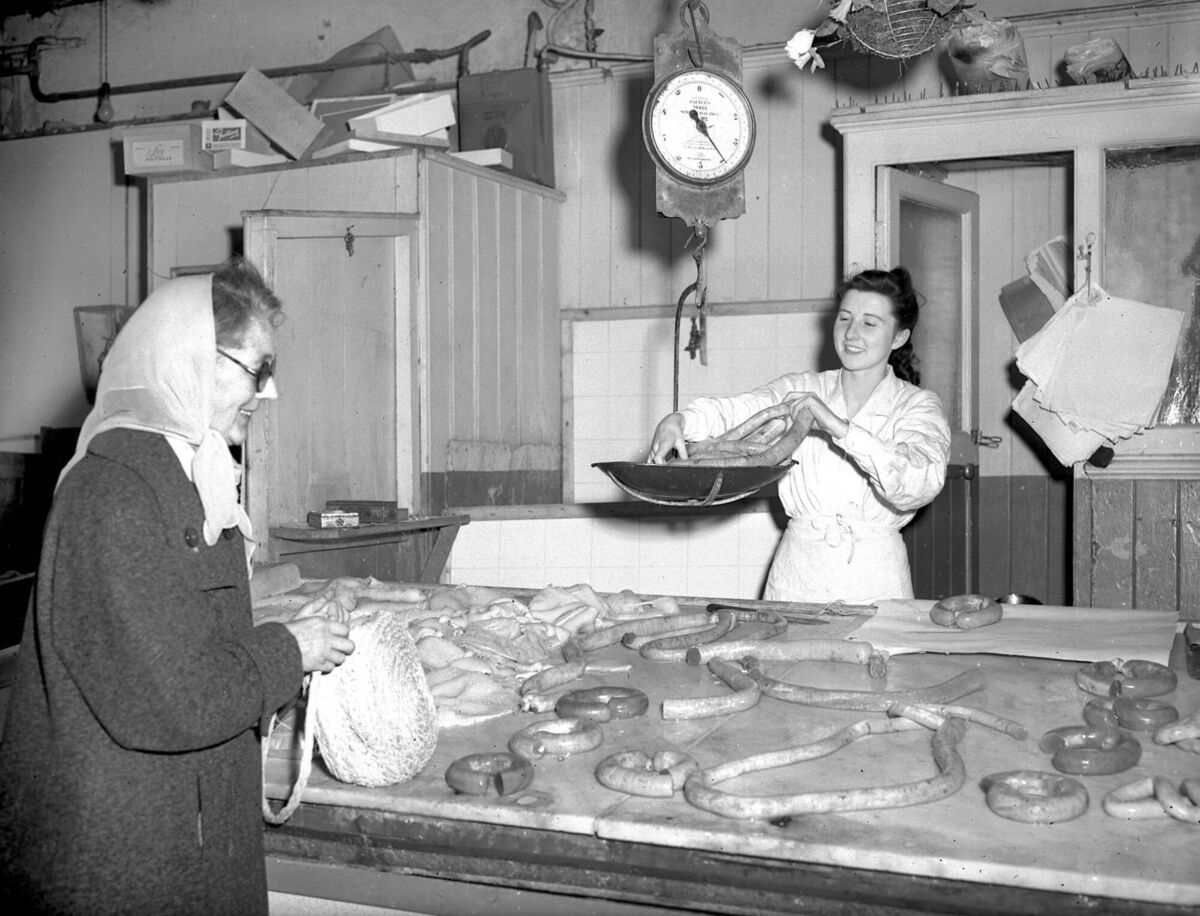
OK, so what has this to do with nostalgia, Throwback Thursday, and the days of our childhood, I hear you asking sharply. We come in and read these pages to get a cheerful reminder of those happy golden years when we were young and heedless. We don’t need a lecture on modern problems.
Well, hang on, just think of those childhood years, and answer this: Can you remember food ever being wasted back in the 40s and 50s? Come on, think back. No, you can’t, can you?
Because we didn’t. We couldn’t.
Our mothers performed miracles of adaptation, invention, and above all re-use of every single scrap of leftover food to put something on the plates the next day.
A housewife who actually and deliberately threw out anything but the potato peelings for the hens would be regarded with horror and quite likely “spoken to” by the neighbours.
“If you don’t want it, we’ll have it and be happy to take it,” could well be the standard reaction.
Tim Cagney’s mention last week of bread and butter pudding, that old stalwart, albeit jazzed up to modern tastes, reminded us of so many dishes that were standard fare back then, but rarely seen now. Even that same bread and butter pudding was created to use up leftover stale bread, far too precious simply to throw away. Soaked in milk, with a few precious raisins and maybe an egg added, it made a warm and filling dessert. Should there ever be a heel of barmbrack left over (small chance), this made an even better version.
Tim Morley was inspired by the bread pudding story to write to us himself: “Your readers, I suspect, come of an older generation, when food was never thrown out. So, when white bread was left over, you cut off the worst of the crust, then diced the rest, softening it up with hot milk, adding egg yolk and sugar, breaking this sort of ‘goodie’ (remember the word?) up a little bit more with a fork, and putting it in the oven. Semolina or cornflour might be used to stiffen the mix up if necessary.
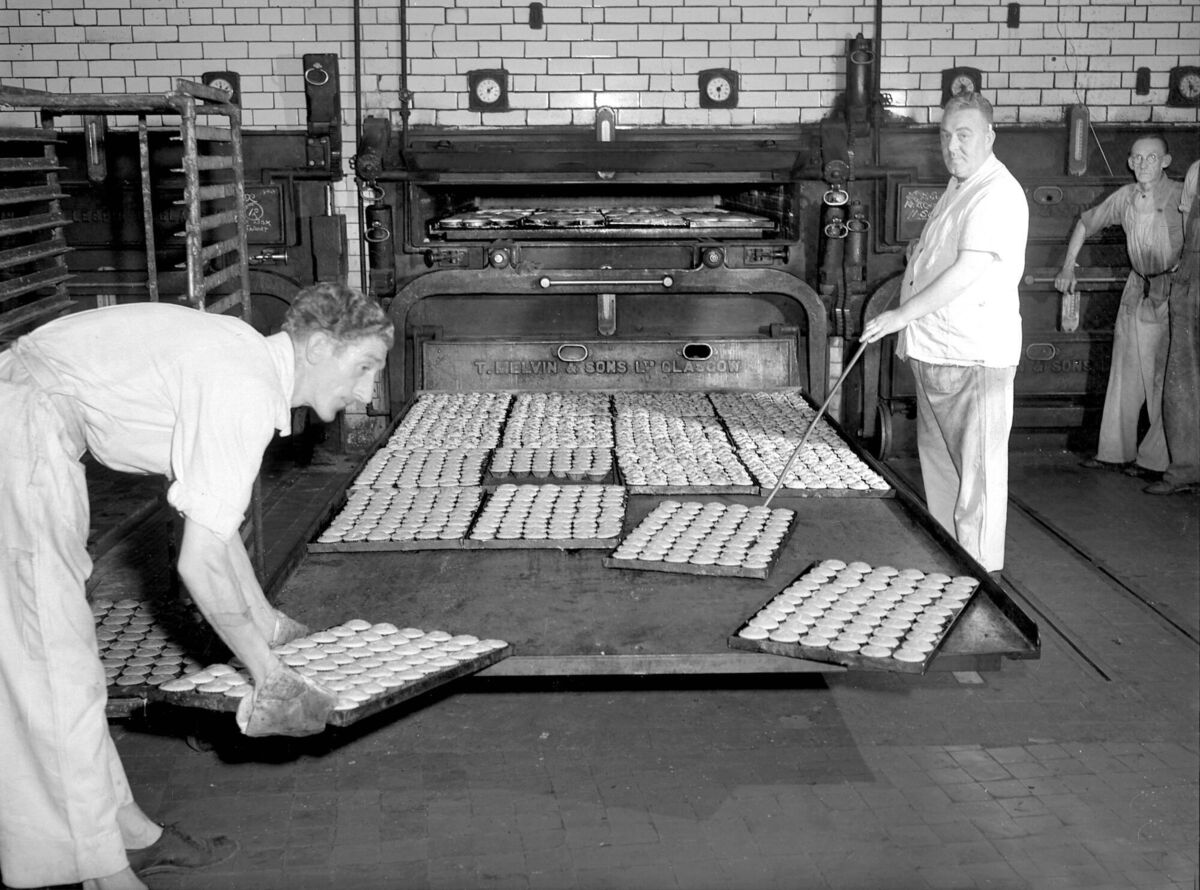
Mr Morley even makes a version of this classic dish today, which other readers may like to try. “Where my mother used a fork to mix it all up though, I’m of a lazier generation, and use a mixer. And you can accelerate the setting process by giving it a few rounds in the microwave. Heat up the oven (not too hot). Mix a spoon or two of raspberry jam with equal amount of hot water to give a sort of syrup, spoon this over the bread mix and into the heated oven with it.
“In the meantime, whisk the egg white, adding sugar to make meringue. This can then be spooned on to the pudding, and the completed dish further baked until all is ready. Since the days of near-poverty are gone, whipped cream is nice with it!”
It wasn’t just with the bread pudding that mothers of the ’40s and ’50s stretched their scant resources to feed their families. Everything possible was done to make ends meet. Our parents and grandparents had more than the paucity of the weekly income to cope with.
There was, in any case, an acute shortage of the most basic necessities – tea, butter, flour, for example, let alone margarine or cooking oil. Added to that, there were strict limits on the supply of gas, even if you did have the requisite penny for the greedy meter.
We greet each rise in food prices with cries of anger and despair these days, whether it’s caused by international strife, bad weather, or Brexit. But back in the early ’50s, constantly rising costs must have driven many to near starvation. For example, between 1950 and 51, butter went up by 50% per lb; bread by 66% per loaf,sugar by 80%, a pint of milk by 150%, a dozen eggs by a staggering 162%, This was at a time when the average weekly wage was about £4.10s, and unemployment benefit for a family £1.12s. And families were generally much larger then than they are now, remember.
So what could your mother or grandmother do back then, even assuming her husband gave her his entire wage packet every week (by no means a given)? And supposing he had had to migrate across to Birmingham or Dagenham to work in the factories there, just to keep his family alive? That was pretty common too. Then the womenfolk would wait nervously, hopefully at the weekend to see if financial aid would arrive via the GPO and the system of wiring money home. If that failed, then the outlook was bleak indeed.
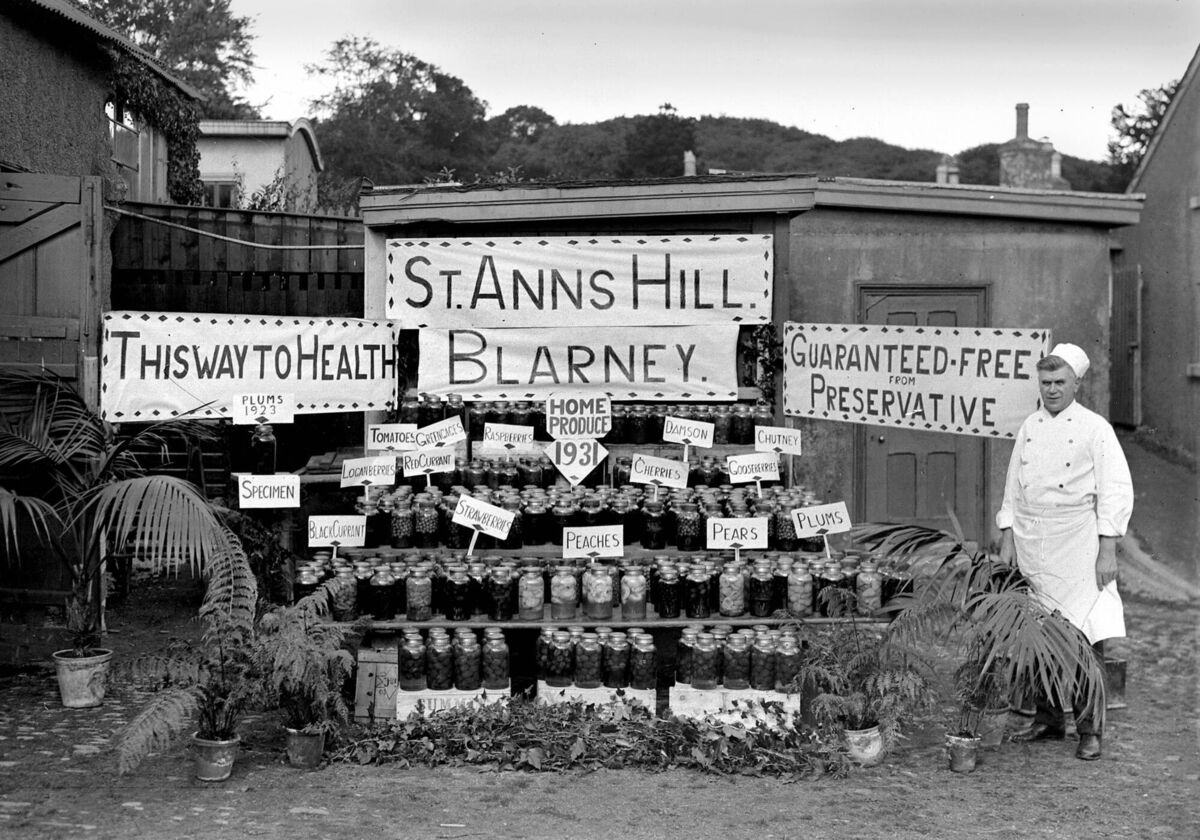
Well, necessity is the mother of invention. If you were fortunate enough to have a joint of corned beef with cabbage on Sunday, the leftovers were almost certainly served up on Monday. Any boiled potatoes remaining after a meal were mashed and turned into potato cakes, fried in the pan. Vegetable stew was, of course, a standby, and if there was a marrowbone left over from last Sunday, then that went in too, to give flavour the rest. Dishes like Irish Stew, now considered a trendy delicacy in fashionable restaurants (as is pig’s cheek and cabbage) were created to stretch limited resources as far as possible. It’s like pizza in Spain or pasta in Italy. Anything that is cheap to prepare and will fill hungry stomachs soon becomes a staple of local diet.
And incidentally, have you met those complaining husbands who are the despair of their wives with their constant complaint that “you don’t make it like my mother did. Nobody could make an Irish stew like my mother!”?
We met one young wife whose husband complained vigorously and endlessly about her inability to make a “proper” rice pudding as his Gran had done, not too firm, not too liquid. In the end, she went off in secrecy and consulted the grandmother.
“Oh he was impossible,” recalled that doughty old lady.
“Nothing would satisfy him, so I always made two rice puddings, one very soft, the other very hard, and he took some of both.”
Well, that was one lesson learned by the new wife. Hopefully she sent her man to cookery classes.
Porridge was always a standby, guaranteed to send children off to school with warm tummies, but even the making of that was fraught with risk. Did you ever have to endure lumpy porridge? Or burned, because someone forgot to watch and stir it on the stove? Sugar, when you had it, was essential, but woe betide anyone who forgot that pinch of salt.
Doesn’t make sense really, does it, adding both salt and sugar, but porridge is one of those dishes which most definitely needs both.
It’s nice to see it still holding its own in the supermarkets against all the highly-flavoured international commercial concoctions. At least something has survived from the old days!
Apples and blackberries in season were always eagerly gathered, and turned into jellies, jams, pies, desserts. Remember those outings, and gleefully bringing home the provender? It is heartbreaking to see old apple trees by the roadside these days, their fruit ripening unheeded, uncollected. What an incredible waste. Instead, an alarming number of factories utilise huge containers of prepared apple, shipped in from heaven knows where. You can always tell the difference, though, between home-made stewed apple and the commercial import – the latter tends to be harder, in fixed shapes that don’t soften, whereas the former is soothing and gentle, especially if the maker has thought to add a little dash of cinnamon and/or cloves.
And do you remember fresh peas, a delight of summer back then too, when there were people willing to pick them, and children made to sit down with a bowl to pod them? Now any peas we grow go for cattle fodder, while glamorous shops sometimes sell tiny packets of the real thing (imported of course) for exorbitant prices. Why, oh why?
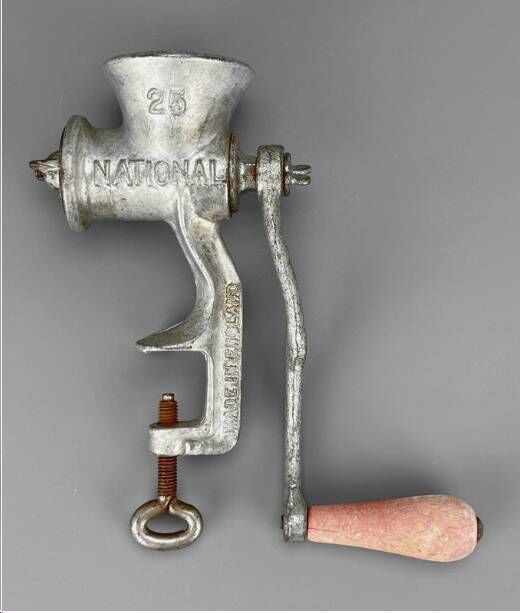
The kitchen implements were rather different back then too. Did your household have a mincer, to shred anything left over from the Sunday joint and use it in a variety of recipes, like what was known as “shepherds pie” with mashed potato? Big heavy cast-iron devices those were, which had to be screwed on to the edge of the table before unwilling small hands were drafted in to turn the handle and see the thin cords of mincemeat coming out. Taking these objects apart for cleaning was a demanding job too, and one suspects that on more than one occasion it was left as it was, to do the same job again another day.
Battered saucepans, blackened frying pan, a range of knives, varying from serrated to sharpened-on-the-grindstone-when-I-have-time. No such thing as clingfilm or indeed a fridge which would have cost more than a month’s wages.
Milk was kept in a jug covered with muslin, and then stood in a bowl of cold water, unless you were fortunate enough to have a stream outside the back door. Meat was stored in a sort of hutch with a wire mesh front.
Tell us your own memories. What food did your mother serve up back when you were a child? Do you remember the fish days, the leftover days, the big occasions (a whole roast chicken from Maddens, oh the treat that was), the careful re-use of the water from boiling a fowl as chicken stock or soup, the ling or dried fish soaked endlessly to soften it before cooking? Queen of Puddings, rock cakes, bread and treacle? Home-made birthday cakes? Tell us your food memories and if you can, the long preparations that went on in the kitchen of your youth, when Magimixes and microwaves, were unthought of.
Email jokerrigan1@gmail.com. Or leave a comment on our Facebook page: https://www.facebook.com/echolivecork.







